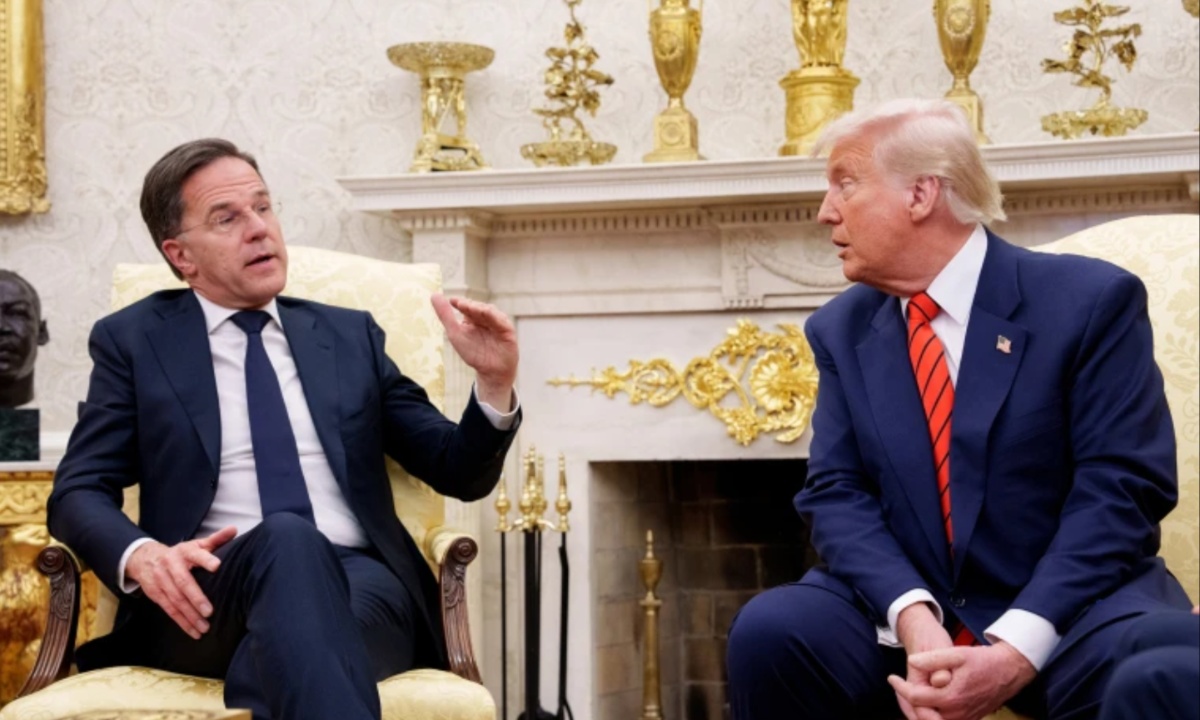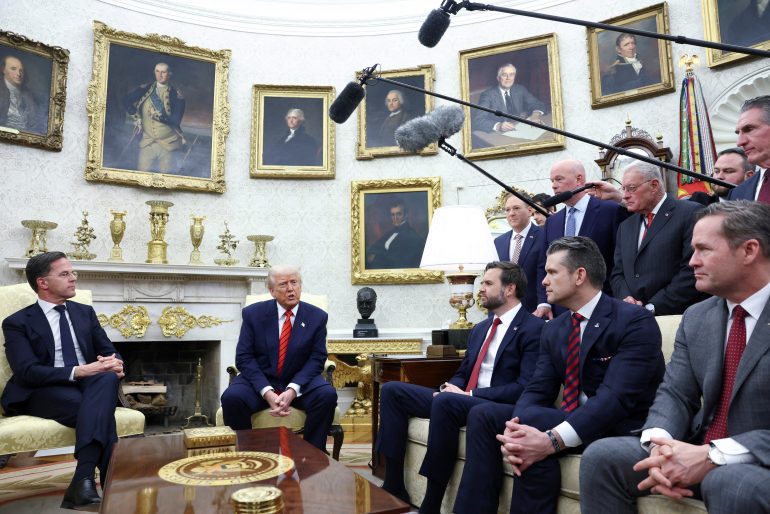U.S. President Donald Trump reiterated his desire to annex Greenland, arguing that American control over the island is crucial for international security. During a meeting with NATO Secretary-General Mark Rutte at the White House, Trump emphasized the need to safeguard the Arctic region from potential threats.
He stated that the U.S. must be cautious about foreign activities in the area and hinted at involving NATO in the process. His comments marked an escalation in his long-standing campaign to bring Greenland under U.S. control.
Greenlandic Leaders Reject U.S. Annexation Amid Strategic and Political Tensions with Trump
Trump’s remarks were met with strong opposition from Greenlandic leaders. Outgoing Prime Minister Mute Egede dismissed the idea, calling it an unacceptable proposal. Jens-Frederik Nielsen, leader of the pro-business Demokraatit party, also condemned Trump’s comments, stressing the need for Greenlanders to stand united.
While Greenland is a semi-autonomous Danish territory, it has expressed interest in eventual independence from Denmark but not in becoming part of the United States. Opinion polls suggest that most Greenlanders oppose U.S. annexation.

Greenland’s geographical position and rich mineral resources make it a valuable asset. The island lies along the shortest route between Europe and North America, making it crucial for U.S. defense and its ballistic missile warning system. Trump has frequently highlighted these factors in his arguments for annexation.
His efforts to expand American influence have also extended beyond Greenland, including proposals for increased U.S. control over the Panama Canal and even suggesting Canada should become the 51st U.S. state, further straining diplomatic relations.
NATO and Denmark Dismiss Trump’s Greenland Claims, Reject U.S. Annexation Efforts Firmly
Despite Trump’s push, NATO and Denmark have remained largely unresponsive. Rutte, while acknowledging the Arctic’s geopolitical significance, refused to involve NATO in the matter. He emphasized that discussions about Greenland’s future should be left to the countries directly impacted, such as Denmark, Greenland, and other Arctic nations. Denmark has firmly stated that Greenland is not for sale, maintaining its sovereignty over the island. The Danish embassy in Washington did not immediately respond to Trump’s renewed claims.
Undeterred by international opposition, Trump hinted at increasing the U.S. military presence in Greenland. He criticized Denmark’s claim over the island, questioning its legitimacy and suggesting that historical claims do not justify current ownership.
Trump’s stance reflects his broader foreign policy approach, where national security concerns often justify aggressive territorial ambitions. While the U.S. maintains military bases in Greenland, any attempt at annexation would likely face strong resistance from both Denmark and Greenland’s population.

